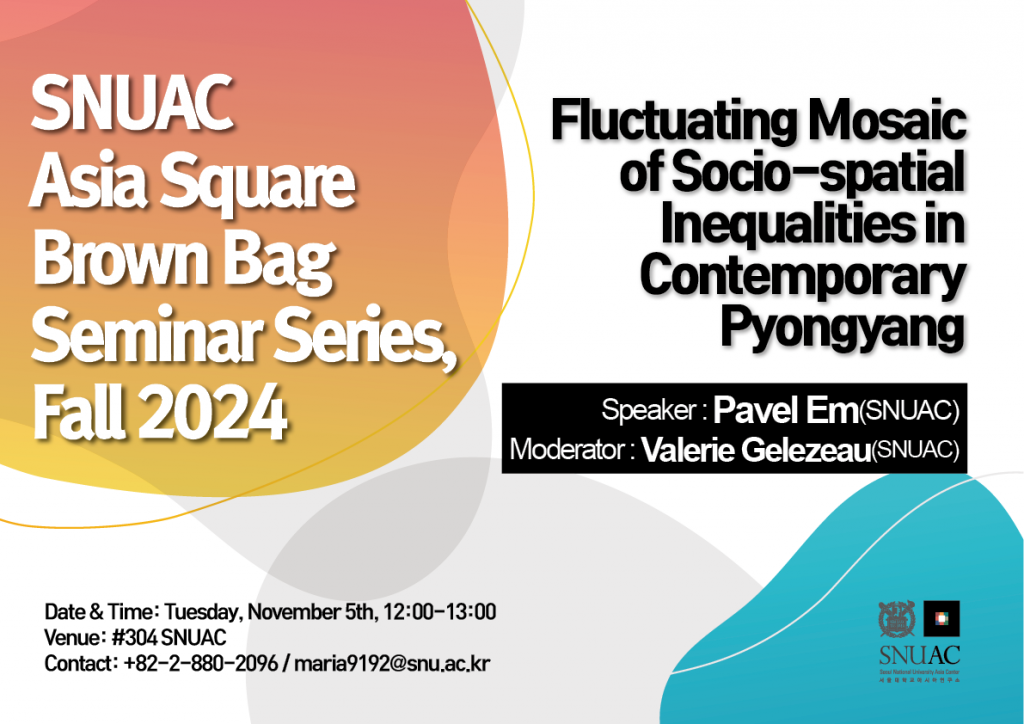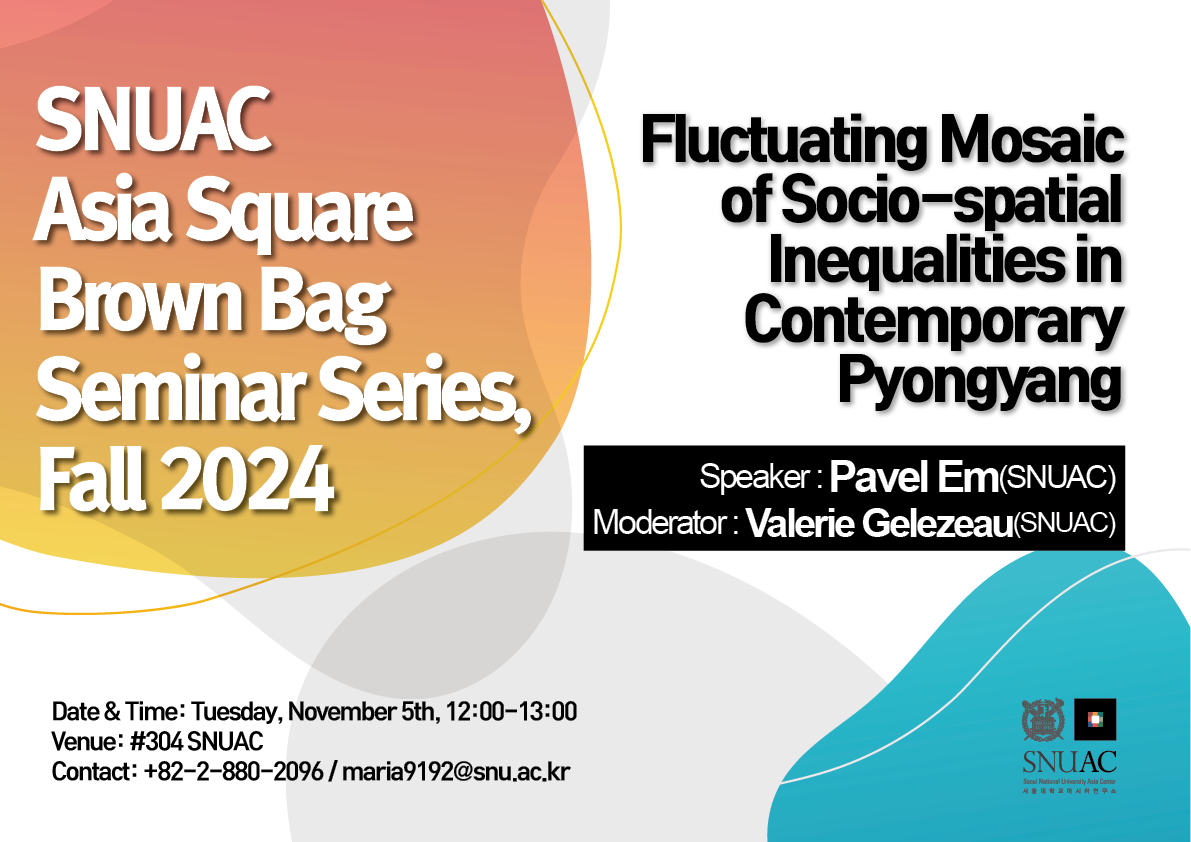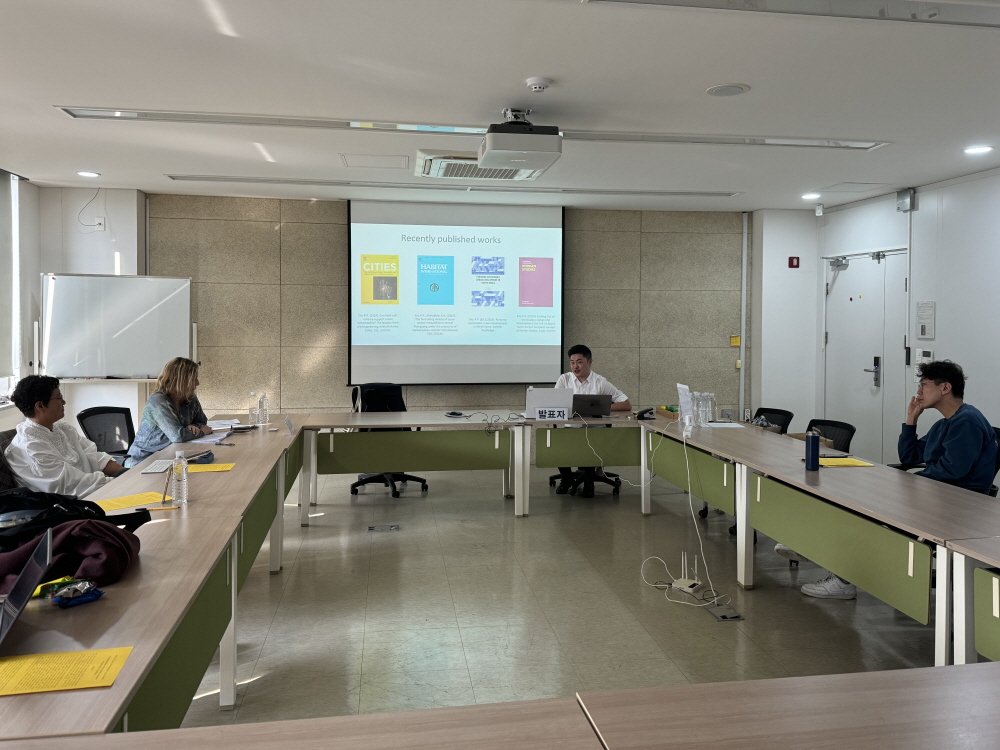
Fluctuating Mosaic of Socio-spatial Inequalities in Contemporary Pyongyang
- Date: November 5th, Tuesday, 2024, 12:00 – 13:00
- Location: Room 304, SNUAC (Bldg. 101)
Speaker : Pavel Em (SNUAC)
Moderator : Valerie Gelezeau (SNUAC)
On Tuesday, November 5, 2024, SNUAC hosted a brown bag seminar featuring Pavel P. Em, a researcher from the Paris School of Advanced Studies in the Social Sciences (EHESS), who presented on “Fluctuating Mosaic of Socio-spatial Inequalities in Contemporary Pyongyang.”
Dr. Em, who earned his Ph.D. in urban geography from Moscow State University, focuses on urban development in North Korea and has published research in journals such as Cities, Habitat International, European Journal of Korean Studies, and North Korean Review. He also edited Pursuing Sustainable Urban Development in North Korea, published by Routledge in 2024.
During the seminar, Dr. Em presented his latest research on Pyongyang, using a range of sources such as field trips, interviews, satellite images from Google Maps, and North Korean publications like Rodong Sinmun. He explored how housing became a critical issue in post-socialist states as markets developed and explained how North Korea’s real estate sector has evolved to reflect social status. Pyongyang, a city with restricted internal migration, shows clear spatial divisions where elite groups reside. He highlighted the emergence of the nouveau riche or “donju” (masters of money) during the mid-1990s “Arduous March” period, who preferred investing in real estate over unstable banking options, collaborating with the state by funding construction projects. North Korean architecture during this period was claimed to reflect Juche ideology, as per Rodong Sinmun.
Dr. Em analyzed Pyongyang’s urban structure by classifying buildings based on height and completion date. His findings indicated that buildings constructed in the 2010s were the tallest, while housing supply and building size were limited from the mid-2000s until Kim Jong-un’s leadership began. Recently, Pyongyang’s real estate market has shown redevelopment patterns akin to post-socialist European cities. Contrary to common perceptions, North Korea’s real estate sector exhibits a strong market-driven and neoliberal character. The seminar’s moderator, Valerie Gelezeau, critiqued the tendency of urban studies to focus solely on European and American cities and emphasized the need to study the much larger-scale post-socialist cities worldwide.
After a lively presentation and Q&A session, Dr. Em discussed his future research plans as an affiliate of the Asia Center. He is currently exploring infill development in Pyongyang and analyzing urban and regional development as reported in Rodong Sinmun. He intends to continue collaborating with Professor Baek Yung Kim at the Northeast Asia Center on North Korea research.
Photos and Review by Hayoung Yoo (Academic Reporter, 20th Cohort of Research Internship)



